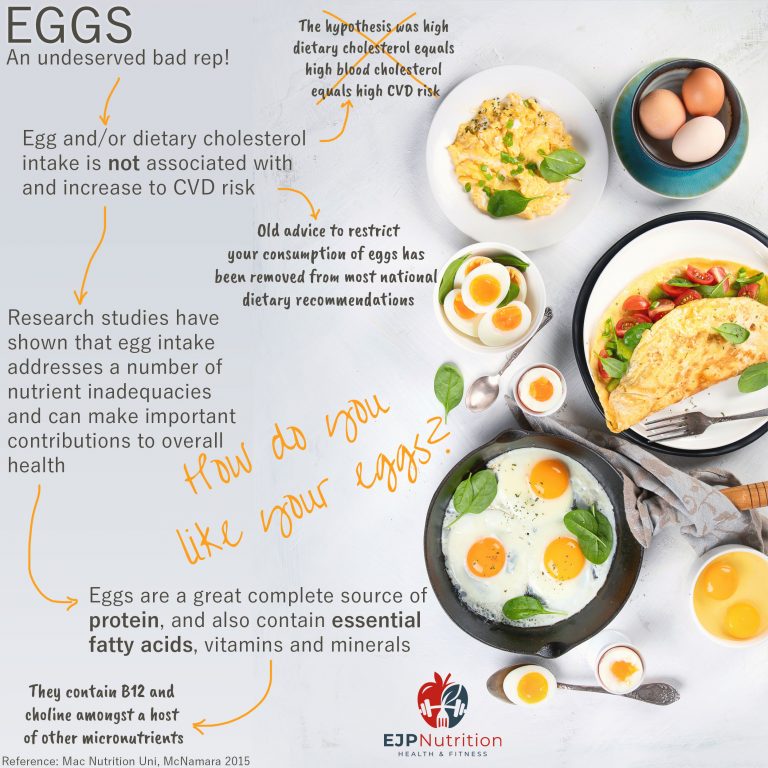Regularly consuming eggs is a concern for some. Should you be worried? Probably not. The apprehension was because for a long time nutritional guidelines advised to limit the number you had. This was due to their dietary cholesterol level. However, this confused dietary & blood cholesterol. Research reviews conclude that an increased egg consumption is not associated with CVD risk in the general population.
From the nutritional side eggs are great. They’re a high quality (complete) protein source, & contain essential fats, vitamins & minerals. As well as being nutrient dense, they’re low in cost (esp. relative to complete animal protein sources). One review notes the previous advice to consume fewer eggs meant; those in the lower socioeconomic classes have been scared away from an affordable source of high quality nutrition.
The protein in eggs is in both the white & yolk. The lipids, vitamins & minerals are concentrated in the yolk. The exact make-up is influenced by the age, stress & diet of the hen. On average you get 12.5g of protein per 100g of raw eggs. The fat ranges from 8.7-11.2g per 100g (all in the yolk). Eggs have a good ratio of unsaturated to saturated fatty acids (5.31 to 2.64g per 100g), which is high compared to other animal sources. The yolk is rich in linoleic acid, an essential fatty acid which we need to get from our diet.
Egg yolks contain vitamins A, D, E, K, B1, B2, B5, B6, B9, & B12, and egg whites have vitamins B2, B3, B5, B1, B6, B8, B9, & B12. Eating two eggs per day covers 10% to 30% of the vitamin RDAs.
Eggs are also high in choline, an essential nutrient which plays an important role in fetal & neonatal brain development. During pregnancy a low intake of choline can increase the risk for neural tube defects.
Interestingly poaching or soft-boiling retains the most nutritional & nutraceutical benefits associated with eggs. These methods cook the egg white – to inactivate antinutritional factors & potential pathogenic bacteria, while the egg yolk remains essentially raw – to preserve most vitamins, lipids & micronutrients.
I love eggs & often eat them in many forms or use them in baking. What’s your favourite type of eggs?
Reference: Mac Nutrition Uni, McNamara 2015, Réhault-Godbert et al 2019, Mah et al 2019
(Reposted from Instagram)


